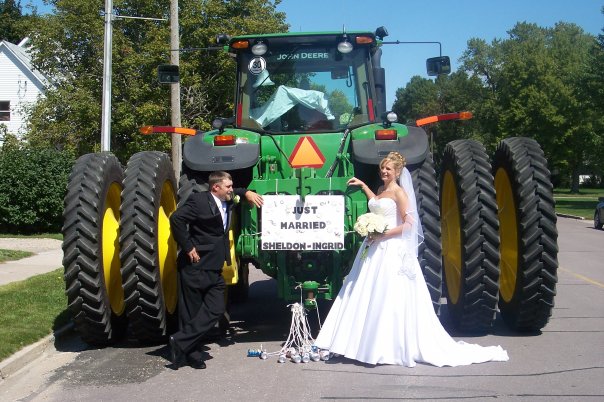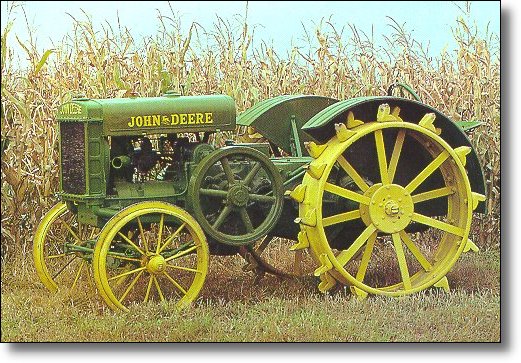Value Chain
John Deere is a company that needs an extensive value chain in order for it to have a competitive advantage over its competitors like Catepillar and International Harvester. Its inbound logistics, operations, and outbound logistics work to give you a quality product to help you get your job done whether it is for agriculture, forestry, commercial, or construction. The company also gives you service and warranty plans which help you get your machinery up and running again. The marketing and sales teams for John Deere do a great job getting their name out there. I am sure a lot of people have heard the phrase, "nothing runs like a Deere." A company like John Deere has such a great reputation which speaks for itself when sales and marketing are involved. The general administration of John Deere is one of its strong points because the quality of the company has always been expressed through the quality of its leadership. Its leaders have extensive knowledge and experience in every are that John Deere has products in. The company's research and development teams are constantly improving and innovating machinery and equipment that make work more efficient.

A company like John Deere has many resources. Some John Deere's tangible resources would include its financial reports like its yearly income and the company's assets found on its balance sheet. Also John Deere's vast products like combines, tractors, and forestry equipment would be considered tangible resources. Its manufacturing plants and facilities are part of its tangible resources, which can be found in 30 countries all over the world.
A few of John Deere's intangible assets would be the experience of all its employees whether it is the sales team, the leadership officers, or the service centers. The biggest of all John Deere's intangible assets is the brand name John Deere itself. A company that has been around since 1837 has a reputation that everyone knows and trusts. My dad works in the farm insurance business and lends farmers money so they can buy equipment. Each farmer has their own preference for brand that it uses like John Deere, or Case. For 175 years equipment buyers have been loyal to the John Deere brand name and will continue to pass this loyalty down to their children and so on.
John Deere's organizational capabilities are second to none. The company really does have outstanding customer service when it comes to their sales team or when your equipment breaks down and it needs to be fixed. Also, the human capital John Deere has is great.










